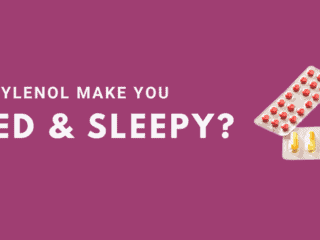The following serious adverse reactions of Trazodone are discussed in greater detail in other sections:
- Clinical Worsening and Suicide Risk
- Serotonin Syndrome or NMS-Like Reactions
- QT Prolongation and Risk of Sudden Death
- Orthostatic Hypotension
- Abnormal Bleeding Events
- Priapism
- Hyponatremia
- Cognitive and Motor Impairment (fatigue, nervousness, blurred vision)
- Discontinuation Symptoms
- Drowsiness
- Dizziness
- Headache
- Nausea/ vomiting
The following information comes from DailyMed, an FDA-approved resource for drug labels.
The most common adverse reactions (reported in ⥠5% and at twice the rate of placebo) are somnolence/sedation, dizziness, constipation, vision blurred, and headache.
Other adverse reactions occurring at an incidence of <2% with the use of trazodone hydrochloride in the controlled clinical studies: akathisia, allergic reaction, anemia, chest pain, delayed urine flow, early menses, flatulence, hallucinations/delusions, hematuria, hyper-salivation, hypomania, impaired memory, impaired speech, impotence, increased appetite, increased libido, increased urinary frequency, missed periods, muscle twitches, numbness, paresthesia, retrograde ejaculation, shortness of breath, and tachycardia/palpitations. Occasional sinus bradycardia has occurred in long-term studies.
Post-marketing Experience
The following adverse reactions have been identified during post-approval use of DESYREL. Because these reactions are reported voluntarily from a population of uncertain size, it is not always possible to estimate their frequency or establish a causal relationship to drug exposure:
- Blood and lymphatic system disorders: hemolytic anemia, leukocytosis
- Cardiac disorders: cardiospasm, congestive heart failure, conduction block, orthostatic hypotension and syncope, palpitations, bradycardia, atrial fibrillation, myocardial infarction, cardiac arrest, arrhythmia, ventricular ectopic activity, including ventricular tachycardia and QT prolongation. Prolonged QT interval, torsade de pointes, and ventricular tachycardia have been reported at doses of 100 mg per day or less.
- Endocrine disorders: inappropriate ADH syndrome
- Eye disorders: diplopia
- Gastrointestinal disorders: increased salivation, nausea/vomiting
- General disorders and administration site conditions: chills, edema, unexplained death, weakness
- Hepatobiliary disorders: cholestasis, jaundice, hyperbilirubinemia, liver enzyme alterations
- Investigations: increased amylase
- Metabolism and nutrition disorders: methemoglobinemia
- Nervous system disorders: aphasia, ataxia, cerebrovascular accident, extrapyramidal symptoms, grand mal seizures, paresthesia, tardive dyskinesia, vertigo
- Psychiatric disorders: abnormal dreams, agitation, anxiety, hallucinations, insomnia, paranoid reaction, psychosis, stupor
- Renal and urinary disorders: urinary incontinence, urinary retention
- Reproductive system and breast disorders: breast enlargement or engorgement, clitorism, lactation, priapism.
- Respiratory, thoracic and mediastinal disorders: apnea
- Skin and subcutaneous tissue disorders: alopecia, hirsutism, leukonychia, pruritus, psoriasis, rash, urticaria
- Vascular disorders: vasodilation
An Important Note
Trazodone has many psychological side effects that can result in anxiety and even depression. If you or someone you know is struggling with thoughts of suicide or self harm, seek help immediately by calling the National Suicide Prevention Lifeline at 1-800-273-8255.
Disclaimer: this article does not constitute or replace medical advice. If you have an emergency or a serious medical question, please contact a medical professional or call 911 immediately. To see our full medical disclaimer, visit our Terms of Use page.





